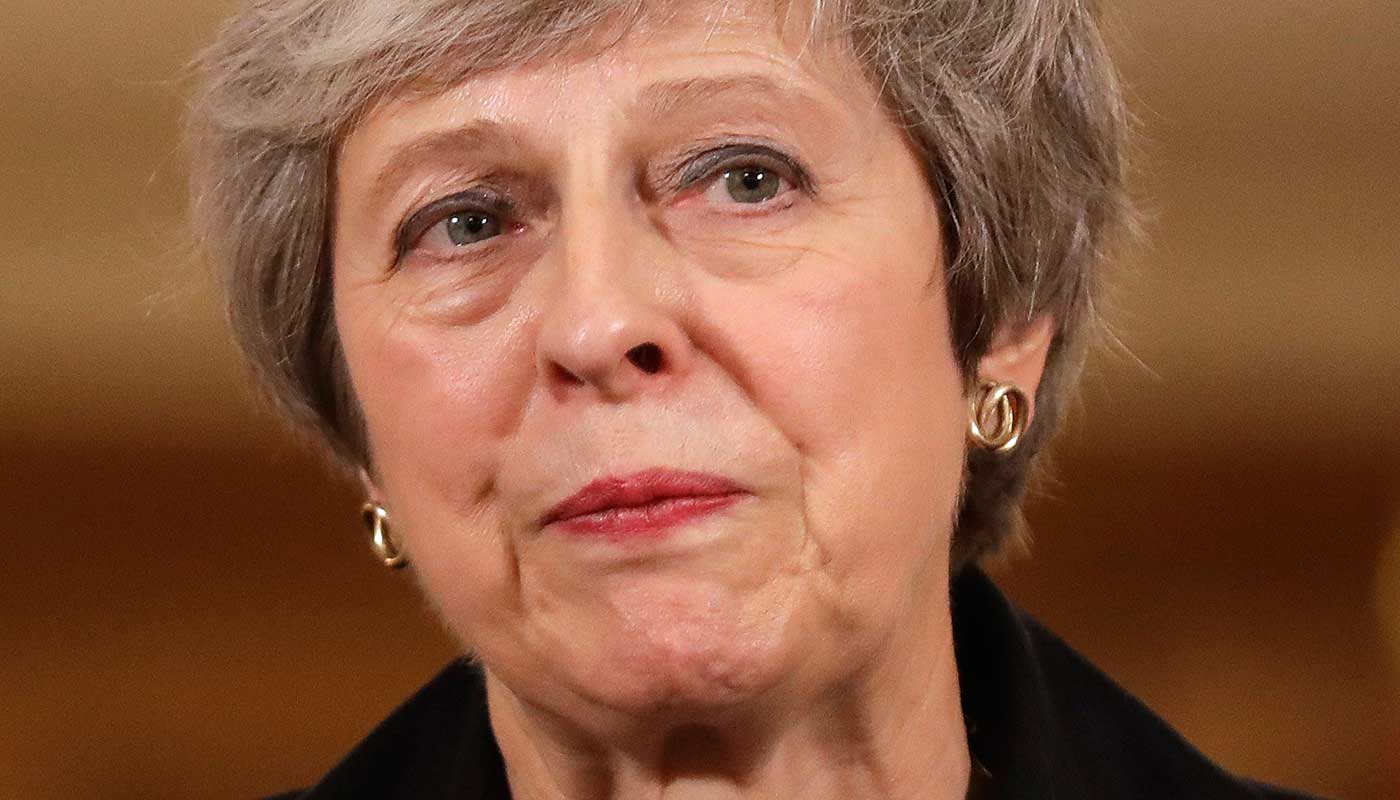Theresa May ‘almost sent 1,000 troops to Syria last year’
The then prime minister reportedly discussed joint deployment with France after Donald Trump withdrew

A free daily email with the biggest news stories of the day – and the best features from TheWeek.com
You are now subscribed
Your newsletter sign-up was successful
Theresa May secretly considered sending up to 1,000 British troops into Syria after Donald Trump announced an abrupt withdrawal of US soldiers from the war-torn country last year, it has been claimed.
The Telegraph exclusively reports that May, prime minister at the time, feared the US president’s “shock announcement” - which came before Islamic State’s (Isis) so-called caliphate was eradicated - would “leave jihadists who still posed a threat to the UK free to plot more atrocities”.
According to the newspaper, she discussed a plan in which London and Paris would send a like-for-like replacement of America’s 2,000 troops on the ground at the time, splitting the burden 50-50.
The Week
Escape your echo chamber. Get the facts behind the news, plus analysis from multiple perspectives.

Sign up for The Week's Free Newsletters
From our morning news briefing to a weekly Good News Newsletter, get the best of The Week delivered directly to your inbox.
From our morning news briefing to a weekly Good News Newsletter, get the best of The Week delivered directly to your inbox.
Although May eventually decided against the move, one source told the Telegraph that it was “properly thought about” during a “frantic few days” before Christmas 2018.
May spent several days “huddled with security and defence figures” to discuss whether Britain and France - America’s two major partners in the coalition – could send troops to Syria, says the newspaper.
The discussions started after the US president suddenly announced on Twitter on 19 December that he would be pulling all US troops out of Syria.
“After historic victories against ISIS, it’s time to bring our great young people home!” he wrote.
A free daily email with the biggest news stories of the day – and the best features from TheWeek.com
In an accompanying video, the US president said: “It’s time for our troops to come back home.”
Trump declared victory, but the Islamic State caliphate had not yet been defeated, with thousands of fighters still holding out in eastern Syria.
–––––––––––––––––––––––––––––––For a round-up of the most important stories from around the world - and a concise, refreshing and balanced take on the week’s news agenda - try The Week magazine. Start your trial subscription today –––––––––––––––––––––––––––––––
The Telegraph says Gavin Williamson, then defence secretary, was included in the talks and is believed to have supported the plan, but Ben Wallace, then security minister, and Alistair Burt, then Middle East minister, were apparently not included in the discussions.
The plan was reportedly not taken further for two reasons. First, there were doubts over whether America would provide the air cover and logistical support required.
Secondly, the extent of the proposed deployment meant May would have had to obtain the approval of Parliament and there were suspicions that MPs would not back the move, especially as the PM lacked a strong majority in the House of Commons.
-
 How the FCC’s ‘equal time’ rule works
How the FCC’s ‘equal time’ rule worksIn the Spotlight The law is at the heart of the Colbert-CBS conflict
-
 What is the endgame in the DHS shutdown?
What is the endgame in the DHS shutdown?Today’s Big Question Democrats want to rein in ICE’s immigration crackdown
-
 ‘Poor time management isn’t just an inconvenience’
‘Poor time management isn’t just an inconvenience’Instant Opinion Opinion, comment and editorials of the day
-
 Epstein files topple law CEO, roil UK government
Epstein files topple law CEO, roil UK governmentSpeed Read Peter Mandelson, Britain’s former ambassador to the US, is caught up in the scandal
-
 Iran and US prepare to meet after skirmishes
Iran and US prepare to meet after skirmishesSpeed Read The incident comes amid heightened tensions in the Middle East
-
 Syria’s Kurds: abandoned by their US ally
Syria’s Kurds: abandoned by their US allyTalking Point Ahmed al-Sharaa’s lightning offensive against Syrian Kurdistan belies his promise to respect the country’s ethnic minorities
-
 Israel retrieves final hostage’s body from Gaza
Israel retrieves final hostage’s body from GazaSpeed Read The 24-year-old police officer was killed during the initial Hamas attack
-
 China’s Xi targets top general in growing purge
China’s Xi targets top general in growing purgeSpeed Read Zhang Youxia is being investigated over ‘grave violations’ of the law
-
 Syria’s Islamic State problem
Syria’s Islamic State problemIn The Spotlight Fragile security in prison camps leads to escape of IS fighters
-
 Panama and Canada are negotiating over a crucial copper mine
Panama and Canada are negotiating over a crucial copper mineIn the Spotlight Panama is set to make a final decision on the mine this summer
-
 Why Greenland’s natural resources are nearly impossible to mine
Why Greenland’s natural resources are nearly impossible to mineThe Explainer The country’s natural landscape makes the task extremely difficult